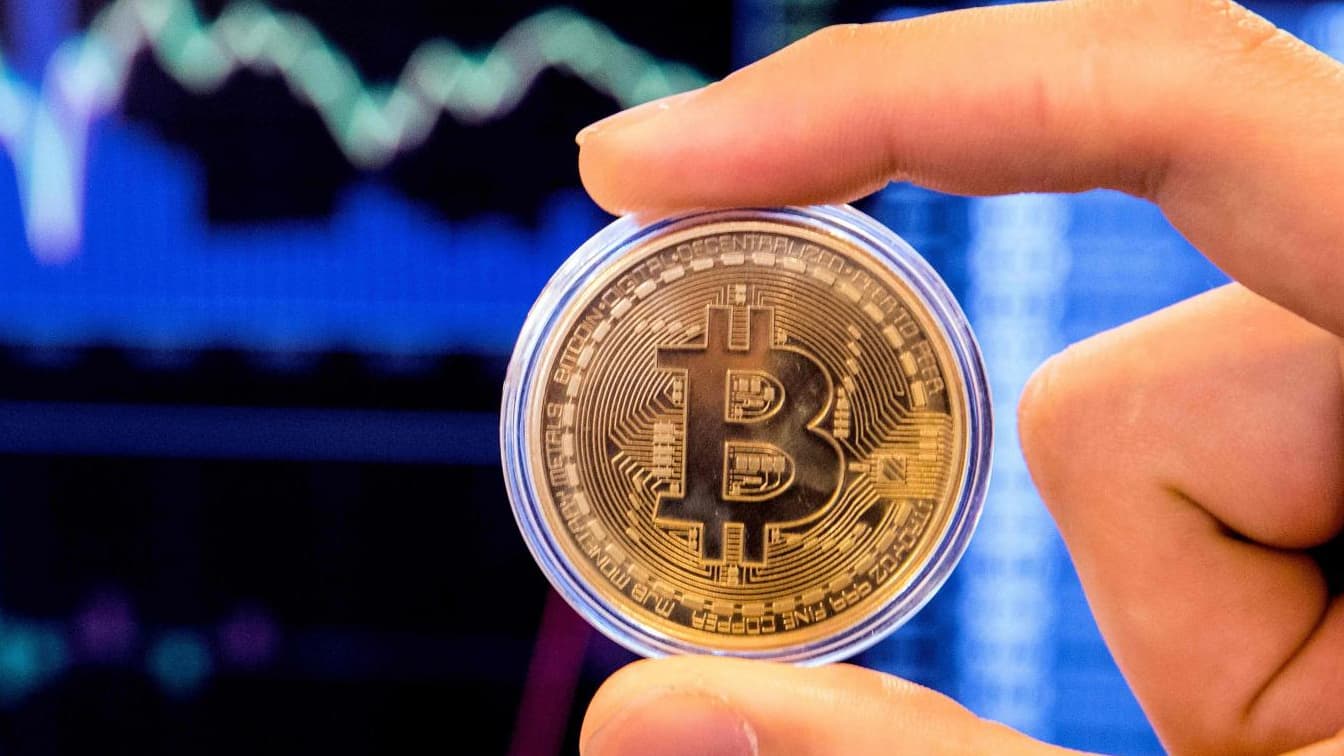
This Monday, bitcoin broke a new absolute record above $71,000. However, this asset is still viewed with suspicion.
Despite its irrepressible appeal on the markets, bitcoin still has a sulphurous reputation, given its history of scandals and sudden price collapses, and its still assiduous use by cybercriminals.
“Bitcoin is known for its frequent and significant price fluctuations,” recalls Walid Koudmani, analyst at XTB, who notes that “fraud and illegal activities” in the sector also continue “to shape the perception of regulators, despite the traceability and increased awareness of the risks of cryptoassets.
Scandals and price plunge
The industry has been in turmoil since the launch on the American markets last January of a new type of investment, an index fund (ETF) indexed to bitcoin. Via this new investment product, specialized companies like Grayscale or Wall Street giants like the asset manager Blackrock invest in the digital token and theoretically allow a larger part of the public to bet on the price of bitcoin without own directly.
The surge in prices is also attributable to a technical phenomenon (“halving”), expected in April, which should reduce the supply of bitcoins available for purchase on exchanges.
At its highest, however, the cryptocurrency is struggling to restore its image after the collapse of several giants of the sector, first and foremost the bankruptcy from November 2022 of the FTX exchange platform. Its boss Sam Bankman-Fried has since been convicted of embezzling several billion dollars of customer deposits without their authorization. The price of bitcoin collapsed in the aftermath, reminiscent of previous cycles of exuberant enthusiasm followed by price collapse.
Furthermore, bitcoin remains a currency used to pay on the darknet and extort funds via ransomware attacks, which block access to their victims’ computer systems and demand payment of a ransom. But once the fraudulent funds are traced by the authorities, the bitcoins can be blacklisted by the various services on the blockchain, making them virtually unusable.
Cybercriminals increasingly prefer to use other types of cryptocurrencies, such as “stablecoins”, whose price is intended to be fixed. The total value of transactions received by virtual wallets hosting cryptocurrencies originating from illicit activities, however, fell “significantly” to 24.2 billion dollars in 2023, compared to 39.6 billion the previous year, according to a February report from the American analysis company Chainalysis.
It should also be remembered that in 2022, only 0.24% of transactions for all cryptocurrencies (compared to 0.12% in 2021) were associated with illicit activity, according to another rapport of Chainalysis on financial crime.
Draft regulations
For their part, regulators continue to warn the public of the dangers of hasty and uninformed investments, which can lead to colossal losses. “For society, a new boom and bust cycle for bitcoin is a disastrous prospect,” said two experts from the European Central Bank (ECB) last February.
According to them, these oscillations are in fact based on an asset with “zero” value, and conducive to price manipulation. Faced with these risks, the European Parliament adopted in April 2023 a regulation on crypto-asset markets (MiCA, for Markets in Crypto-Assets), which notably provides for mandatory authorization for service providers around digital assets. Other countries have also legislated, such as Japan, which amended its existing framework to integrate electronic payment systems, including cryptocurrencies.
In the United States, coherent regulations are struggling to be put in place due to “a lack of knowledge” among politicians, but also the ambition to adopt legislation that would solve all the problems at once, as well as fallout from the FTX scandal, thinks Cody Carbone, of the Chamber of Digital Commerce, an industry pressure group, interviewed by AFP.
This former congressional aide to a Republican elected official also points out the large number of actors involved, from states to the federal government to regulators, “which has led to a very confusing mess for businesses.” For Walid Koudmani, of XTB, only “clear and consistent regulations, addressing problems such as money laundering while encouraging innovation, could establish confidence and stability in the sector” of cryptocurrencies.
Source: https://www.bfmtv.com/crypto/bitcoin/malgre-l-explosion-du-bitcoin-le-crypto-actif-traine-encore-une-reputation-sulfureuse_AD-202403110363.html


